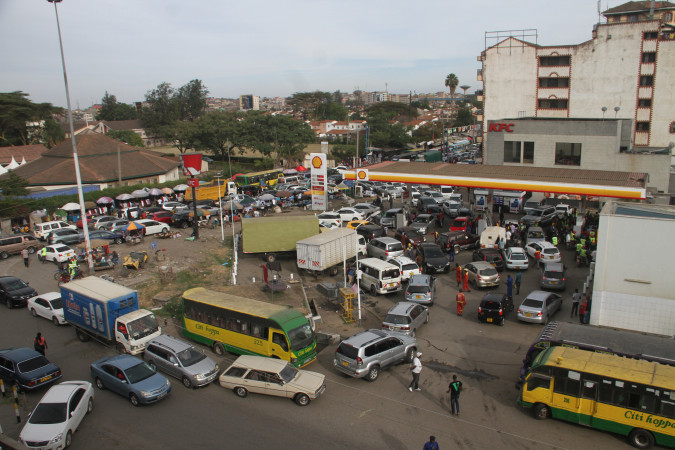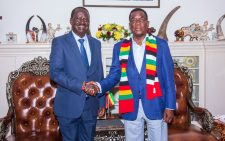An Easter holiday full of woes: polls, petrol, goods

The increasing cost of living portends a painful Easter holiday amid a fuel shortage crisis, electoral uncertainty and imminent opening of schools.
The majority of Kenyans are not sure whether they will travel upcountry for the holiday, what with a fuel shortage that has forced motorists to ditch their vehicles for public transport whose fares increase randomly, especially for upcountry destinations.
The ongoing electioneering process is also a spoilsport — with political parties holding their primaries this Easter period. High-octane politics are causing great tension and violence. Recently, several parts of the country witnessed demonstrations against unfair nomination processes.
Raila Odinga’s ODM party has started nominations for different positions while Deputy President William Ruto’s United Democratic Alliance is slated to commence the exercise over Easter.
The General Election slated for August 9 is expected to be highly contested, as President Uhuru Kenyatta completes his 10-year-term in power.
“I don’t plan to travel upcountry; I don’t want to look for fuel along the way,” says Emmanuel Oduori, who has never missed visiting his aged mother in Busia during Easter in the past three years.
Park vehicles at home
His sentiments resonate with those of many Kenyans who have decided to park their vehicles at home for fear of stalling on the way, or incurring extra charges due to price spikes.
Yesterday, the fuel crisis continued to bite for the fourth week, forcing petrol stations to ration the commodity to meet increasing demand against irregular supply.
Petroleum products have been in short supply as marketers slug it out with the government over unpaid subsidies. Long queues have been the order of the day in parts of the country, with some petrol stations rationing the commodity to a maximum Sh1,000 per vehicle.
Kenya Transporters Association (KTA) chairman Newton Wang’oo has been urging the government to resolve the issue since it claims there is enough fuel. “How can there be enough fuel, and a big shortage, at the same time?” he asks.
Commuters in Molo wishing to travel upcountry were stranded last evening as vehicles en-route to Kisii from Nairobi were not stopping in the town. The situation could worsen during Easter when many people usually travel to various destinations.
For many parents, the situation is compounded by the opening of schools for the first term on April 25, a Catch 22 situation pitting travel expenses against school fees needs.
“I have two children going to Class Four and Eight this term. The first term is always the most expensive. Parents are required to pay school fees in addition to buying books,” says Motema Momanyi, an agricultural officer from Suneka, Kisii.
“Although my parents will be disappointed, they will have to understand the situation, Momanyi says.
Unlike previous Easter holidays, cautious shopping is expected this time, with the cost of living rising abnormally. Prices of commodities such as wheat flour, maize flour, eggs, soft drinks and cooking gas have shot up exponentially.
Add to these the Covid-19 pandemic shocks and the geopolitical challenges caused by the Russia-Ukraine war — all taking a big toll on the economy.
“If the government cannot resolve this issue, we foresee a dark future. Our families are suffering since we have not earned any money for days. Some people might even resort to crime to support their families. That’s not what we want,” Kariuki said.
The fuel shortage worsens the pain Kenyans have been feeling. Retailers say they are enduring constant reprimands from irate consumers wanting to know the reasons for the constant price increases.
Liz Wavinya, a hardware employee along Katani Road in Mavoko sub-county, says wholesalers give them ambiguous answers for the price adjustments. “They tell us that yesterday’s prices are not similar to today’s, although we hear it is a result of the President banning trade in scrap metal”.
Wavinya’s hardware stocks assorted building materials for customers in Katani and Syokimau, two areas which are experiencing unprecedented construction of residential and commercial buildings.
Products whose prices have risen include column steel, iron sheets, roofing nails, tubes and paint thinners.
These high costs will affect construction, purchase and renting of houses, and are being felt by households.
For Bethwel Migiro, who runs a grocery store in the same location, apart from complaints on shortage of milk and eggs, the prices of soda, wheat flour, cigarettes, maize, as well as laundry and bar soaps are shooting through the roof.
Scarcity of eggs, which he blamed on unavailability of chicken feed, has led to price increases from Sh310 a tray to Sh370. Migiro increased the price of a 2kg packet of of maize flour from Sh60 to Sh70, and is selling a kilo of the commodity at Sh43, up from Sh35, effective March this year.













